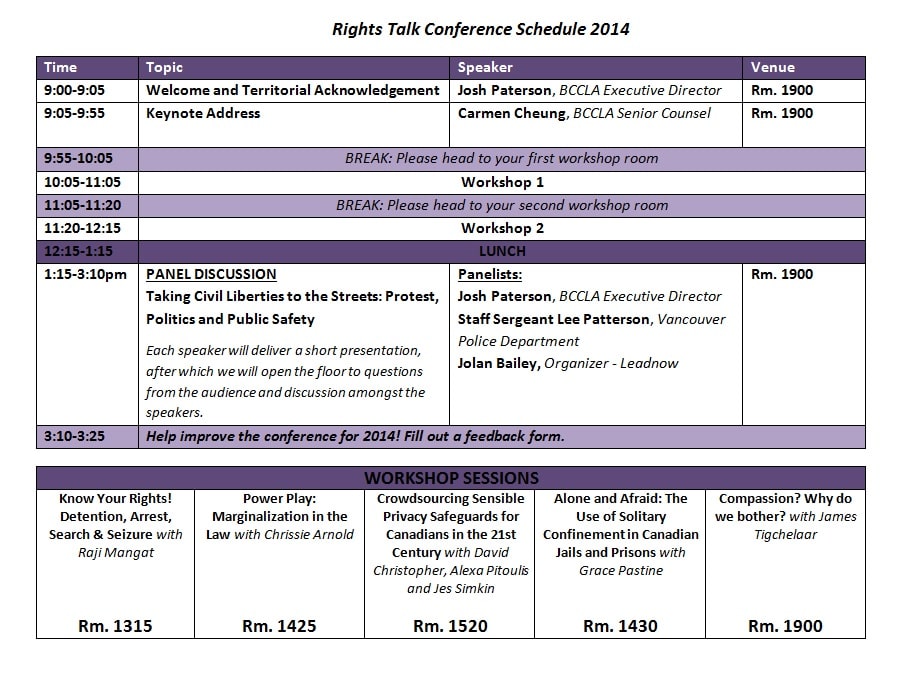We are pleased to present the 10th annual Rights Talk: Youth and Civil Liberties Conference taking place from 9:00am to 3:30pm on November 20, 2014 at SFU Harbour Centre.
* Students must register for their preferred afternoon sessions by following the link below. This process is first come, first served until the sessions are full. Please note that this process is only for students and teachers who have had their participation confirmed in advance by conference coordinator Alyssa Stryker. There are no additional spots for this conference at this time.*
Register here for your workshops:
Event Schedule
Workshops:
1. COMPASSION: WHY DO WE BOTHER?
with James Tigchelaar
People from socially disadvantaged places are more likely to contract HIV, live with addictions, and die prematurely than the socially advantaged. How do we respond to this as individuals and as a society? What challenges does this present in providing health care in these areas?
2.Know YOUR Rights – Detention, Arrest, Search and Seizure
with Raji Mangat
Do you know your rights? What happens if you are stopped by the police in the street — do you have to answer questions? Can the police search you? What about your cell phone – can the police search it? This workshop will answer these questions and more!
3.Power Play: Marginalization in the Law
with Chrissie Arnold
In this session, we use games and activities to facilitate discussions about power, discrimination and equality. It serves as a brief introduction to equality law in Canada, introducing the Charter of Rights and Freedoms and looking at some of the cases where it has been used. If you are interested in social change and how the law can be used to further it, don’t miss this session!
4. ALONE AND AFRAID: THE USE OF SOLITARY CONFINEMENT IN CANADIAN JAILS AND PRISONS
with Grace Pastine
5. CROWDSOURCING SENSIBLE PRIVACY SAFEGUARDS FOR CANADIANS IN THE 21st CENTURY
with David Christopher

